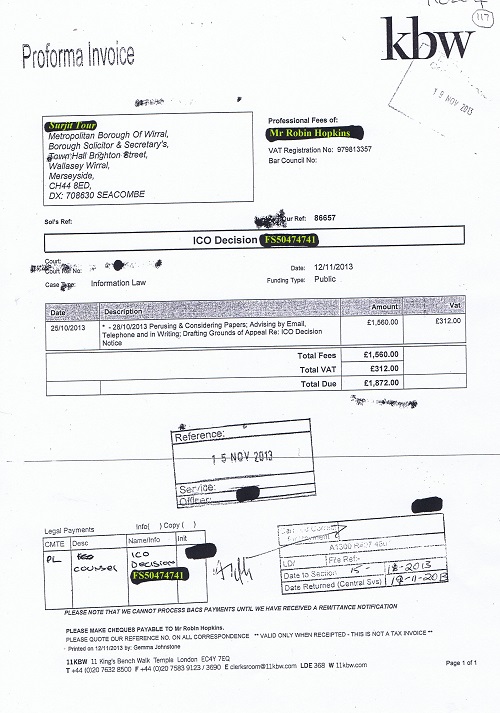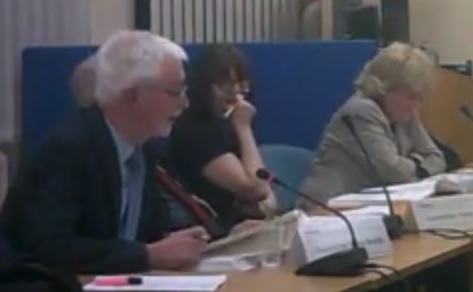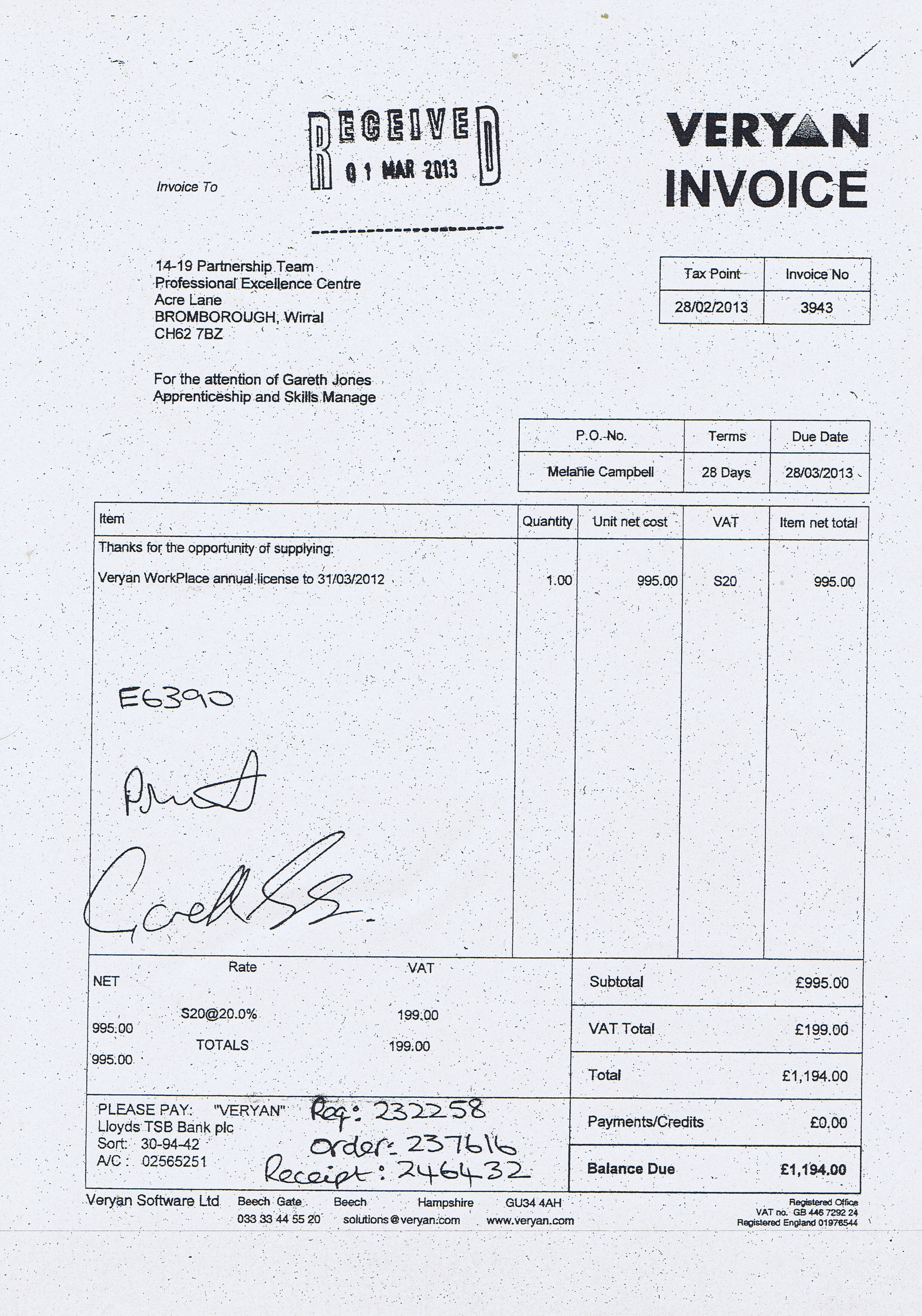Marvin the Martian returns to try to understand the incredible Lyndale School situation and the £1 million SEN budget cut

The below is a fictional interview with Marvin the Martian about Lyndale School. Marvin the Martian is trademarked to Warner Brothers Entertainment. Our legal team point out their trademark doesn’t actually cover its use on blogs but in case they try to argue this blog is an “entertainment service”, it isn’t, so no laughing! Yes I mean it, not even a smile! We also point out it’s not an infringing use of class 9 of this trademark as that refers to its use on goods rather than virtually.
We rely on s.30 of the Copyright, Designs and Patents Act 1988 and class this as “fair dealing” due to the acknowledgement above. As the The Copyright and Rights in Performances (Quotation and Parody) Regulations 2014 have come into force earlier this month, we’ll rely on this too and the new section 30A on parody.
JOHN BRACE: Thanks once again for agreeing to be interviewed about Lyndale School. We asked Wirral Council for a meeting about Lyndale School but they declined.
MARVIN THE MARTIAN: You’re welcome. Well that is a shame I was looking forward to finally meeting people from Wirral Council that I have seen on your video broadcasts. Why do your politicians think they can get away with making decisions like this?
JOHN BRACE: They believe they’re doing the right thing in making “difficult decisions” that are “unpopular”. Also many are what’s in “safe seats”, and many of them (if they choose to do so) will not have to face the public in an election for many years to come.
MARVIN THE MARTIAN: But they’re still subject to laws right, that meeting last Thursday the people making the decision didn’t have the required statutory guidance for decision makers which includes the SEN Improvement Test as part of the papers for that meeting?
JOHN BRACE: Well the politicians could have adjourned the meeting and received the correct documents but they chose not to. However you can’t expect politicians to know what they’re doing. They’re elected to look at things from the public perspective and rely on officer advice in such matters. Anyway preparing the papers for a meeting is an officer function in consultation with the Chair.
MARVIN THE MARTIAN: You can’t blame this on the committee services officer Lyndzay Roberts though as she only includes in the papers for the meeting what she’s been given in time for it to be published and on that subject why do they keep picking the committee services officer who is a wheelchair user for the Lyndale School meetings?
JOHN BRACE: I’m afraid I can’t read people’s minds and would prefer not to answer that question.
MARVIN THE MARTIAN: Ahh the “Lynn Wright” defence eh? How much do you get paid then?
JOHN BRACE: Not enough to be answering questions from fictional characters about difficult subjects and I’m assuming your second question is a joke! I know what I got paid last year, so does HMRC. I can estimate what I will get paid this year but as I’m on a fixed amount plus an element that is related to performance, I literally could only tell you it’s above £x,xxx/year. I’m also not sure if you mean gross or net salary as a certain proportion of my earnings I don’t get as they are paid in taxes. I have income from sources other than my salary though.
MARVIN THE MARTIAN: Ha ha! OK, I won’t pry too much! Back to Lyndale, what was decided on Thursday?
JOHN BRACE: To uphold the Cabinet decision of 4th September 2014 on a majority 9:6 vote.
MARVIN THE MARTIAN: And remind me what the Cabinet decision of 4th September 2014 was?
JOHN BRACE: Following the first consultation, to have a further second (but different) consultation on closure.
MARVIN THE MARTIAN: I thought they’d just had a consultation!
JOHN BRACE: This is a similar but different sort of consultation.
MARVIN THE MARTIAN: OK, I never realised closing down a school was made so complicated!
JOHN BRACE: A final decision on closure has not yet been made. This is just an “in principle” decision on closure.
MARVIN THE MARTIAN: And how much is this all costing?
JOHN BRACE: Who knows? The school closure/retirement costs budget for this year is £326,000. However it looks like £200,000 of that will be moved to another budget heading soon.
MARVIN THE MARTIAN: Which budget heading?
JOHN BRACE: PFI (private finance initiative).
MARVIN THE MARTIAN: Why’s that?
JOHN BRACE: Well you always have to plan for the worst and hope for the best with school closures, extra call in meetings, delays, legal challenges et cetera. Sometimes that means budget allocated goes unspent which can be used for other things.
MARVIN THE MARTIAN: So they’re not going to use a £200,000 underspend on the school closure budget to keep Lyndale open another year (costing ~£190,000)?
JOHN BRACE: No, pending a decision by the Wirral Schools Forum an underspend on the school closure budget will be spent instead next year on the ~£12 million a year PFI contract.
MARVIN THE MARTIAN: OK, so when does this second consultation on closing Lyndale School start?
JOHN BRACE: Wirral Council officers had authorisation to proceed with implementation of the Cabinet decision of 4th September 2014, once the call in ended on 2nd October 2014. This has been delegated by the Cabinet to Julia Hassall to implement.
Regulation 8 of the Openness of Local Government Bodies Regulations 2014 will require Wirral Council to publish a notice on their website shortly after Julia Hassall implements this decision. This public notice has to contain the date of the decision, a record of the decision and reasons, details of any alternative options considered and rejected and the names of any of the Cabinet that declared a conflict of interest in the decision.
MARVIN THE MARTIAN: Well how likely are Wirral Council to do that?
JOHN BRACE: They probably won’t. They always have great difficulty in complying with their legal requirements (of which there are many).There have been many decisions delegated by councillors to officers taken since these new regulations came into effect near the start of August 2014 ranging from taxi licences to other types of decision. Another part of the same regulations dealt with filming of public meetings, which thankfully settles a long running industrial relations dispute with us and them. As far as I can tell no public notice has been published by officers relating to those yet?
MARVIN THE MARTIAN: Why ever not?
JOHN BRACE: Some of the officers to whom the decisions have been delegated to make don’t have the authorisation to publish public notices on the website through the Modgov system. Also this change to legal requirements (which should’ve been implemented from August) would require a change to working practices which requires consultation with the trade unions through the HR department before implementation. Finally, in the vast majority of cases, there are either existing capacity issues with staffing or the decisions are so minor that nobody’s really apart from myself is paying that much attention whether internally or externally while more interesting things are happening and putting the necessary political pressure on to ensure these new regulations are implemented?
MARVIN THE MARTIAN: Like what is more interesting?
JOHN BRACE: Like officers’ plan to persuade the Wirral Schools Forum on Wednesday evening to make £1 million of in year cuts this year in 2014/15 to (SEN Top Ups/Independent School Fees (£600,000), statements (£200,000) and support for SEN (£200,000)).
MARVIN THE MARTIAN: And why are they proposing to cut a further £1 million from the SEN budget this year?
JOHN BRACE: So they can pay for PFI costs in 2015/16.
MARVIN THE MARTIAN: And why have PFI costs risen so much?
JOHN BRACE: Because a political decision was made a long time ago to take ~£2 million out of the PFI budget for 2015/16 and get schools to pay for it instead through budget cuts. Also the calculation in the contract bases yearly increases in how much is paid based on the RPI value in December of one year compared to the previous year then multiplied by ninety percent. That’s my simple explanation, the contract itself refers to the 90% as 0.9 and has a formula as to how the increases are calculated.
MARVIN THE MARTIAN: So if the other special schools (other than Lyndale) think they’re safe they’re not?
JOHN BRACE: Indeed, their budgets were protected this year by dropping by more than 1.5%. Based on the draft regulations circulated by the government (Schools and Early Years Finance (England) Regulations 2014) as part of the current consultation (which closes on October 17th 2014), for special school that protection (assuming the draft regulations aren’t changed) will end in 2015/16. The department for education can be emailed at 2014SchoolFinanceRegulations.Consultation@education.gsi.gov.uk about the policy side of the consultation, or consultation.unit@education.gsi.gov.uk or by telephone on 0370 000 2288 or by mail to Department for Education, Beth O’Brien, Department for Education, Great Smith Street, London SW1P 3BT. Further detail about the consultation is on the DfE website here and you can respond online to this consultation here.
However for mainstream it looks like the minimum funding guarantee of at least 98.5% of last years budget will continue in some form?
MARVIN THE MARTIAN: So because they can (or assume they can) Wirral Council will target more special schools for cuts in the future?
JOHN BRACE: Probably, but officers don’t decide that however they can recommend that. That’s ultimately decided by the Wirral Schools Forum/councillors.
MARVIN THE MARTIAN: So is the money they’re getting for schools each year, the ~£175 million they get from the government under the direct schools grant going down next year?
JOHN BRACE: No it isn’t, but a financial and purely local decision by Wirral Council has been made to withdraw the extra funding from Wirral Council that paid for the PFI affordability gap. This amounts to £600,000 this year and millions next year (2015/16). The PFI affordability gap is the total PFI expenditure minus the fixed grant minus the costs schools pay for the services under the PFI contract which is next year about £2.6 million.
MARVIN THE MARTIAN: So who was the Cabinet Member that originally agreed to this PFI contract in the first place?
JOHN BRACE: Councillor Phil Davies, the current Leader of Wirral Council.
MARVIN THE MARTIAN: Is there any way out of the contract, when does it end and can it be renegotiated?
JOHN BRACE: Yes, 2031 and yes.
MARVIN THE MARTIAN: So will they try to renegotiate to save money or terminate it?
JOHN BRACE: Probably not no, management were asked this at the last Wirral Schools Forum, however management only know what they’re told about the contract, they’re not managing it on a day to day basis. Terminating it would be expensive as there is still 17 years left to run, renegotiating would be the more likely option of the two if the political will is there.
MARVIN THE MARTIAN: So you’re saying the Wirral School Forum members asked Wirral Council officers that hadn’t actually read the contract?
JOHN BRACE: Judging by their answers probably not, managers don’t do things themselves they delegate tasks such as reading contracts and managing contracts to others, maybe not even people that are directly line managed by them but people lower down the food chain.
You can’t expect a senior manager to read such a long contract. Even if they did, it’s hundreds of pages long. It would be very hard to remember all the details unless they brought an electronic searchable version along to the Wirral Schools Forum on say a tablet computer or alternatively circulated an electronic copy to the members of the Wirral Schools Forum. I suppose as a councillor (and member of the Wirral Schools Forum) Cllr Wendy Clements could ask for a copy if she so wished.
MARVIN THE MARTIAN: So what does the PFI contract actually say about renegotiation?
JOHN BRACE: Wirral Council have to ask the provider (Wirral Schools Services Limited) about changes to the contract and be specific. Wirral Schools Services Limited then have a limited time period in which to respond stating (and I summarise here) whether they agree or not to the changes or not. If they agree they are implemented. However if there is disagreement between Wirral Council and the contractor there is a dispute resolution procedure that can be followed.
MARVIN THE MARTIAN: So are there any changes they have to agree to?
JOHN BRACE: Yes certain changes they have to agree to. For example there was a legislation change recently on free school meals for children under a certain age. As this was a legislation change, Wirral Council can ask for such changes to be implemented so that Wirral Council does not breach its legal obligations.
There are other categories of change that the contractor has to agree to too.
MARVIN THE MARTIAN: Indeed, so could Wirral Council’s legal department come up with similar changes which could result in the total cost being lowered?
JOHN BRACE: Wirral Council’s legal department has issues of its own. Also it in order to implement changes quickly it would require agreement of the contractor Wirral Schools Services Limited. Wirral Council would have to seek appropriate authorisation internally from sufficiently senior officers and if it had large budgetary implications in terms of costs or savings then also authorisation from politicians.
MARVIN THE MARTIAN: So it’s possible?
JOHN BRACE: Anything’s possible. However as the contractor is a large organisation with a turnover off the top of my head of about £62 million, although they are considerably smaller in annual yearly revenue budget than Wirral Council, Wirral Council still get scared of organisations with that sort of financial clout, as well as organisational and legal resources at their disposal.
MARVIN THE MARTIAN: Does current senior management at Wirral Council want to renegotiate the contract?
JOHN BRACE: If the Wirral Schools Forum and/or politicians in the administration asked them to they’d have to to look into the option (which would depending on the option and the savings/cost implication would affect budgets through to 2031). After negotiations, generally officers would bring back options to politicians/Wirral Schools Forum for a meeting. However the Schools PFI contract is complex, it is hard for anyone to understand easily.
If neither of those formally happen, senior management already have enough on their plate already and lack the current internal capacity as they are already negotiating a 7 year extension to a contract of a similar size (~£12 million a year) with Biffa Waste Services Limited.
MARVIN THE MARTIAN: But Biffa is in a different strategic directorate to schools!
JOHN BRACE: Indeed but there are capacity issues at the management level and across the organisation at all levels. This is due to annual leave requirements, illness, other factors and the mere practical constraints of there only ever being so many people to keep all the plates spinning up in the air at once.
MARVIN THE MARTIAN: Oh dear. So what is the likely net result to be?
JOHN BRACE: Instead of renegotiating savings on a contract, Wirral Council in the absence of either strong leadership at either the Wirral Schools Forum level or political level will probably accept the status quo and instead make in year cuts of a further £1 million to special educational needs. Officers will probably point out that they have tried to make sure the cuts don’t adversely affect front line services, but they will!
MARVIN THE MARTIAN: How on Mars do you make £2 million of in year cuts without it affecting frontline services?
JOHN BRACE: Indeed… here is a link to the papers for tomorrow’s Wirral Schools Forum meeting which is a public meeting starting at 6.00pm in the Council Chamber in Wallasey Town Hall.
If you click on any of these buttons below, you’ll be doing me a favour by sharing this article with other people. Thanks:














